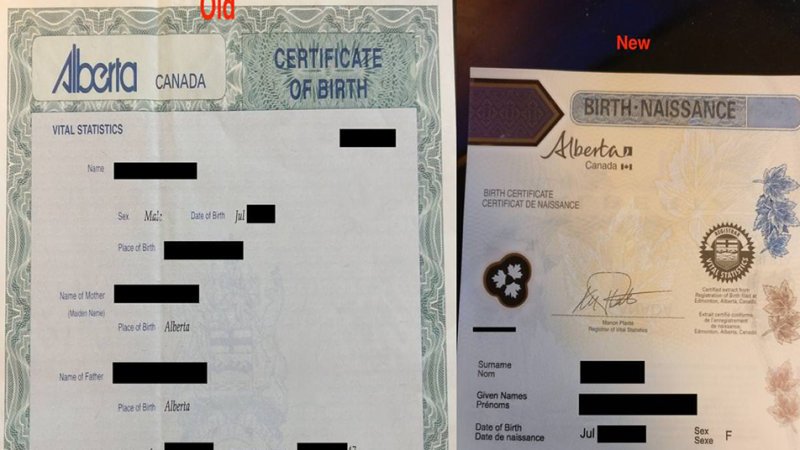‘I am now a woman’: Man changes birth certificate to save on car insurance

In the lexicon of insurance slogans, there's one that goes, "I just saved a bunch of money on my car insurance by switching to Geico." Here's another approach: "I just saved a bunch of money by switching genders."
A man in Alberta, Canada, tells the CBC that he wanted to buy a new Chevy Cruze, but being a male and in his early 20s, and with a less-than-perfect driving record, he was shocked at the cost of insurance — he was quoted $4,500 a year.
So he became a woman.
OK, biologically he remains a man. There were no surgeries and he doesn't literally identify as female. But the man, named by the broadcaster only as David, says he changed his gender to female on his government-issued identification. Wait, how's that? "I have taken advantage of a loophole," he says. More on that in a moment.
He got the idea when, stunned by that $4,500 quote, he asked the insurance agent what coverage would cost if he were a woman. The answer: $3,400.
"I was pretty angry about that. And I didn't feel like getting screwed over any more," he said.
"So I asked them to change my gender on my auto policy, and she's like, we can't do that."
So he found another way. Alberta is one of several Canadian provinces where residents can legally change the sex on their birth certificates by just checking a different box. You simply need a note from a doctor or psychologist saying you identify as a different gender.
"It was pretty simple. I just basically asked for it and told (the doctor) that I identify as a woman, or I'd like to identify as a woman, and he wrote me the letter I wanted," David told CBC. It was a lie, of course, but once you've gotten your birth certificate amended, it's a snap to get your driver's license changed, and then bring on those sweet savings in that sweet, sweet Chevy Cruze. Worth it, right?
David thinks so. "I am now a woman ... I now pay $1,100 less for auto insurance. I won. The end," he wrote on Reddit.
The point of the birth certificate law wasn't to pull a fast one on the insurance companies, but rather to make it easier for the transgender community, who presumably until now were the only people interested in this law. Actually, there was a right-wing provocateur named Lauren Southern who changed her sex to male to mock Ontario's similar law, and David indicates he got the idea from her, though he is quick to add that he is supportive of transgender people. "I did it for cheaper car insurance."
Premiums are higher for young men than for young women in Canada, as they are in the States. A 2012 study said the delta in premium costs between genders was 5 percent, on average, which is certainly much less of a difference than David was quoted. Interesting that the rate difference between David the man and David the woman, both with the same driving record, would have been more like 25 percent. Perhaps he should have cross-shopped insurance companies some more.
The price difference exists because young men in general have higher accident rates. In the United States, the Insurance Institute for Highway Safety has data showing that men are about twice as likely to die in a car crash. Men do often spend more time behind the wheel, thereby increasing the odds of an accident, but in general, insurers say men are also more likely to drive drunk, speed or drive recklessly.
And to illustrate that point, David, who was 23 when he changed his birth certificate, had a collision and several tickets on his driving record. He points out in his Reddit post that "poor driving is a behavioral trait, not a biological one." Well, yes, and — there you go.
Because it's operated by the province of British Columbia, one insurer, ICBC, says it does not discriminate by age, sex, race, etc., when setting its premiums. Which, to David's point, is maybe how it should be. But even ICBC would surely still have dinged him on his record.
Like, say, a tattoo, David's decision to alter his birth certificate may turn out to be something he regrets later in life, says Steve Kee, spokesman for the Insurance Bureau of Canada.
"If you're going to declare on any document, you need to be truthful," Kee said. "If not, you're making a fraudulent claim. This could impact you for any future insurance application that you make, or any other aspect of your life."
Related News
